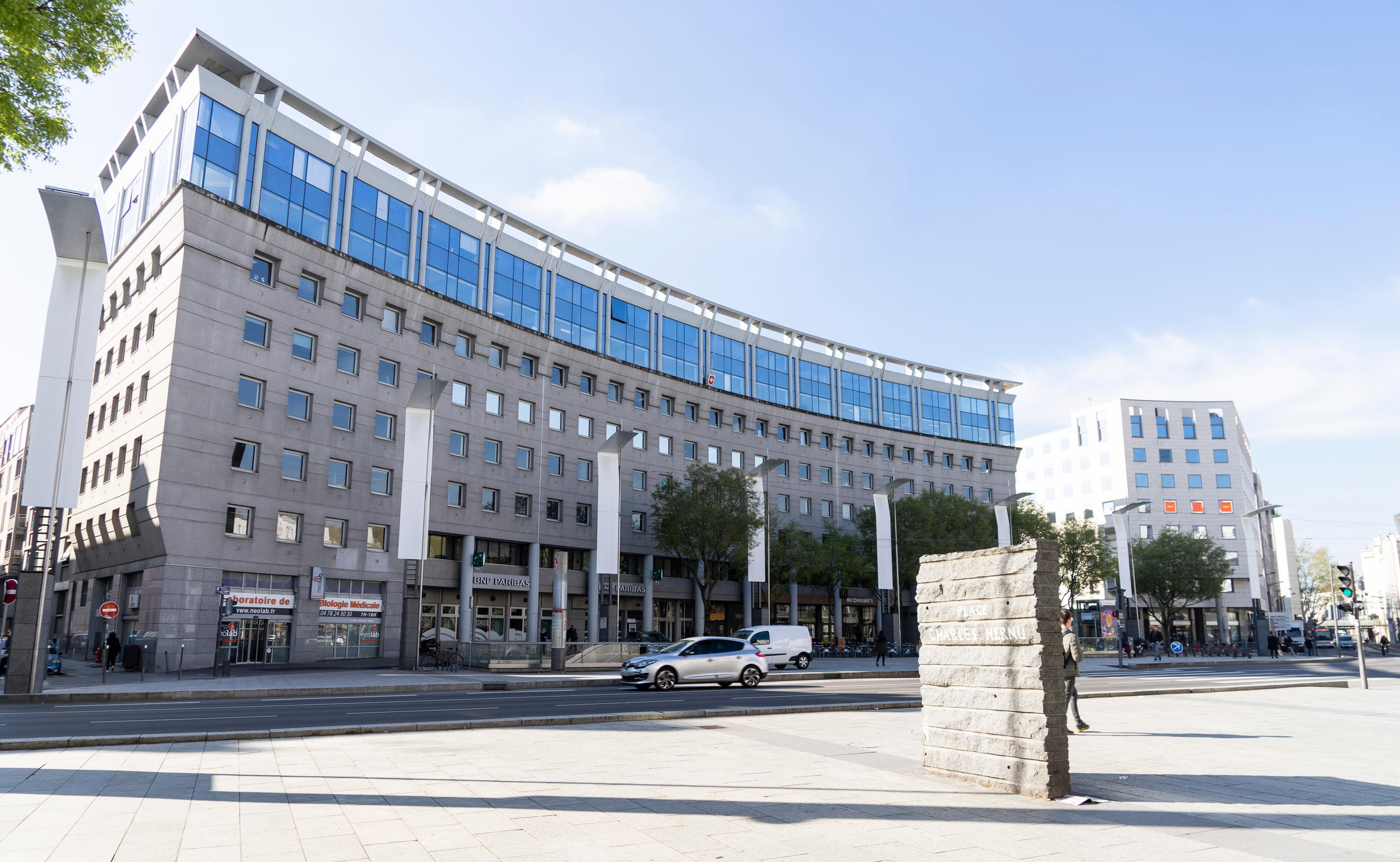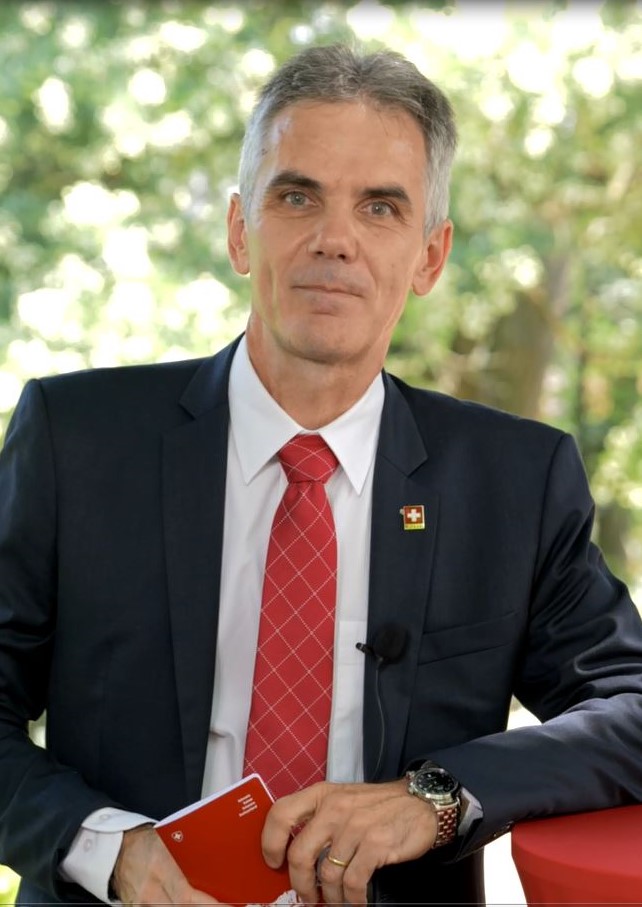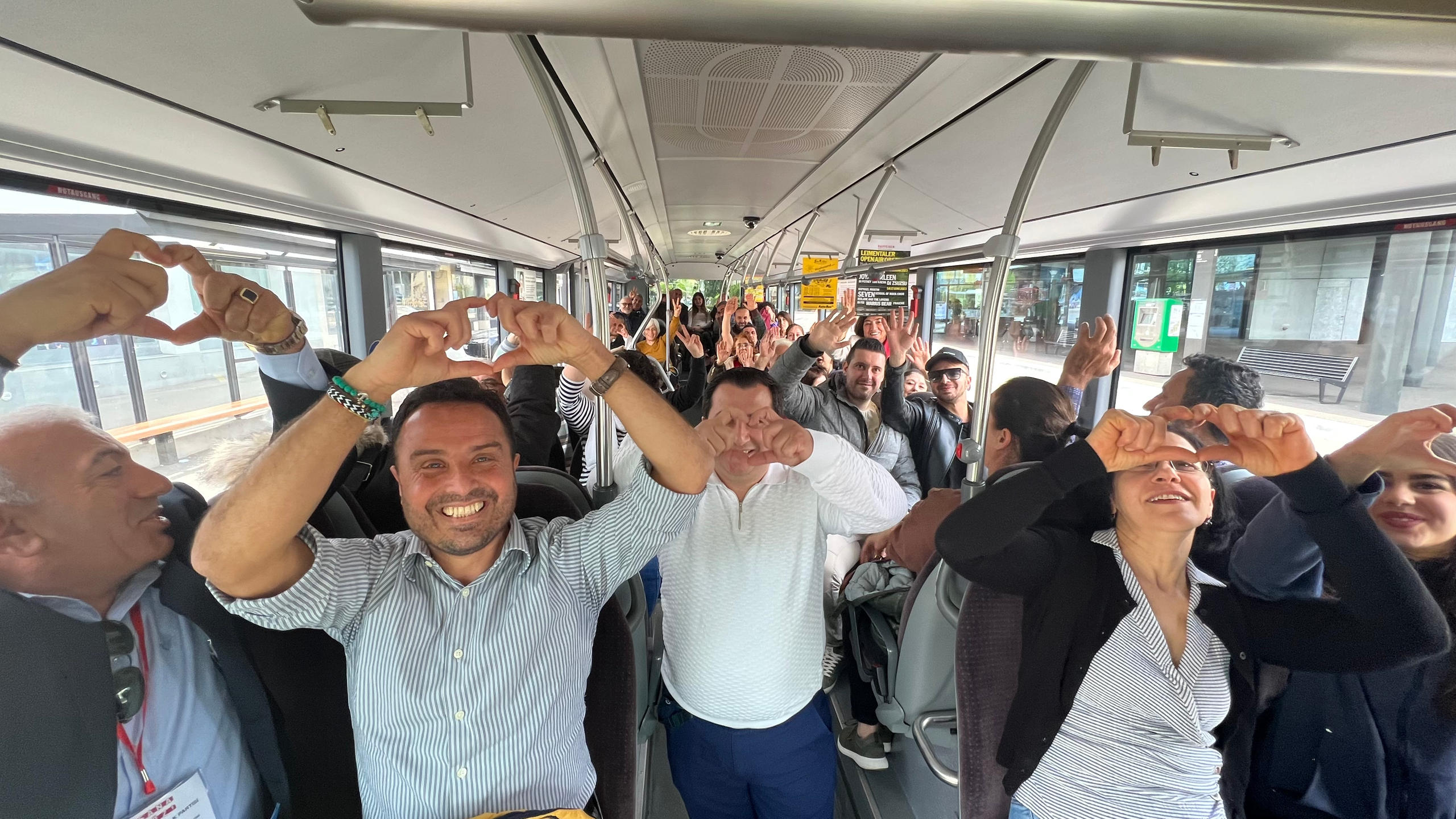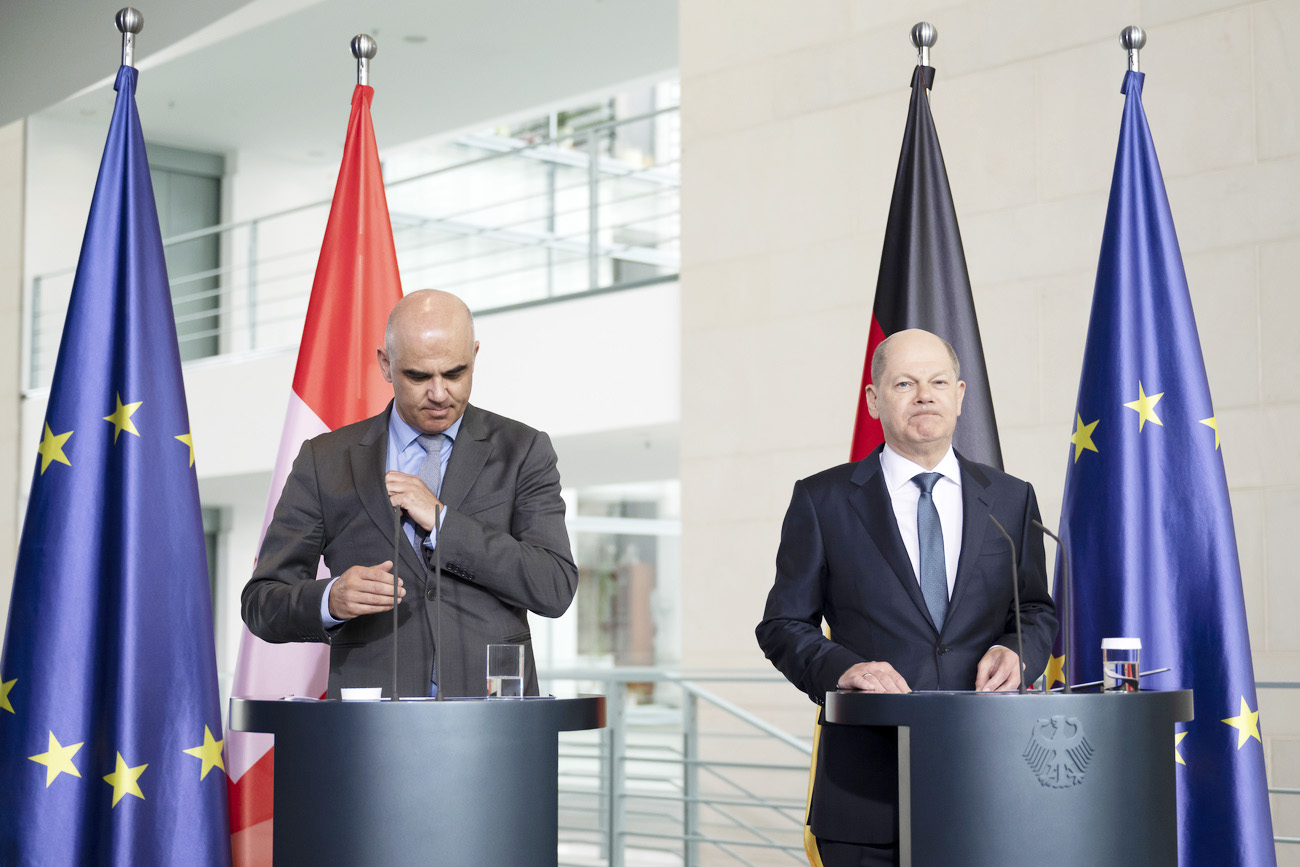Conducting Swiss cross-border diplomacy in France

The Auvergne-Rhone-Alpes region hosts the largest community of Swiss Abroad in France. It also has the largest number of cross-border workers. The consul general of Switzerland in Lyon, Pascal Bornoz, talks to SWI swissinfo.ch about "Swissness" in the region.
SWI swissinfo.ch: What is the profile of the Swiss Abroad community in the region and what sort of a challenge does it represent?
Pascal Bornoz: The consulate in Lyon is in charge of the Auvergne-Rhone-Alpes and Bourgogne-Franche-Comté regions. We have a total of 112,000 Swiss citizens registered, with 84,000 in Auvergne-Rhone-Alpes alone. All in all, about 206,500 Swiss citizens are registered residents in France.
The community is united, autonomous in its everyday functioning, and active – there are more people of working age than retired. But you also have to remember that 80% of them have dual nationality.
The Swiss who live here are well integrated. To that extent, the community presents no particular challenges.

SWI: On the other hand, what challenges do the Swiss Abroad in the region face?
P.B.: As in any country, settling in France means adapting to the local rules and getting along with administrative structures that are different from what we know in Switzerland. So I think it is important for the consulate to have good contacts with Swiss associations out in the community. They are our go-betweens.
Therefore, and especially since the Covid-19 pandemic, my vice-consul and myself take the opportunity to meet presidents of Swiss clubs when we travel around. Once a year, I organise a lunch at the residence, and invite all the presidents in the district, about thirty of them. Additionally, person invited can bring along the youngest active member of their group.
SWI: The regions you deal with are border regions. Do the Swiss in these regions feel a need for “Swissness”, even though their home country is so close?
P.B.: Oh yes. I notice that both in the urban centres and in the country. The Swiss living here want to keep in touch through media, and also through all sorts of cultural activities organised by private individuals or the consulate here.
For the young Swiss children, the consulate organises each year an event called “afternoon in the park of the consulate residence”. It’s a tea party with playful ways to discover Switzerland. All Swiss children between 4 and 8 are invited to the event and can bring a friend of a different nationality as well as an adult.
SWI: Federal elections are looming later this year. What do the Swiss in your region expect?
P.B.: The diplomatic staff and myself try to work on this in advance so that our citizens are well informed, know where to get information, and know the procedures they have to follow.
We keep the community informed through our newsletter. When I go to events, I always raise this topic, even if there isn’t an election on the horizon at the time. Every year we send a letter to to the Swiss youths who are reaching voting age, so as to remind them of all their rights and duties, including voting. In January 2023, we reached about 1,500 individuals this way.
SWI: What role does the consulate in Lyon play in the Swiss Abroad community, and with France?
P.B.: The consulate wears several hats. First, it acts like a local government office and it looks after all the administrative requirements of the Swiss community. Secondly, its job is to listen, to be prepared to open doors and develop an understanding of the issues between France and Switzerland. As I see it, the role of the consulate is to contribute in finding solutions.
SWI: What kinds of issues need solutions?
P.B.: Remote working, energy resources, and mobility. It’s easy to cross the border at Bardonnex (Geneva) or to go from one side to the other on the Leman Express railway, but few people are aware of all the work this takes behind the scenes. At a regional level, the consulate promotes the necessary dialogue between the French and Swiss authorities involved. However, when an issue needs to be resolved at a national level, our embassy in Paris as well as the cantonal and the federal ministries are the ones responsible.
SWI: What are the strategic aims of the consulate for the Swiss in the region?
P.B.: We have two main goals. The first is to make sure that the community can get the services they need both in Switzerland and in France. That means the administrations need to work together.
Our second aim is to encourage contact between the Swiss Abroad in this region. To do that, we invite people to the consulate, as I mentioned earlier, and we also organise events beyond the consulate.
I like going out and meeting our fellow-Swiss. It is an enriching experience to learn about their lives.
SWI: Are your situations comparable – yours and theirs?
P.B.: I have a different perspective on living in France, of course, because I am here on a limited posting, whereas the Swiss here are mainly permanent residents. The nature of my job gives me a different outlook on things, but I think I understand their outlook and it’s really not so different from mine.
SWI: A new French-Swiss accord on remote working came into force at the end of 2022. Are you seeing any effects?
P.B.: Definitely! The consulate is now fielding far fewer inquiries, which shows that the new agreement has properly managed the concerns of the people involved. The amount of cross-border workers affected is around 214,000 individuals.
In my view, this agreement on the tax aspects of remote cross-border working shows that if we dialogue on issues, we can get around our territorial peculiarities and find solutions.
SWI: Are there any topics troubling the relationship between this region and Switzerland?
P.B.: They are more like minor issues, which just need more dialogue to find common solutions. In my view, it just shows that discussions are still taking place and the situation is not bogged down.
French-Swiss relations are positive and dynamic. The border regions are great common areas of human settlement and activity, so we need to find compromises – and that is our daily work.
Translated from French by Terence MacNamee/amva

In compliance with the JTI standards
More: SWI swissinfo.ch certified by the Journalism Trust Initiative












You can find an overview of ongoing debates with our journalists here . Please join us!
If you want to start a conversation about a topic raised in this article or want to report factual errors, email us at english@swissinfo.ch.